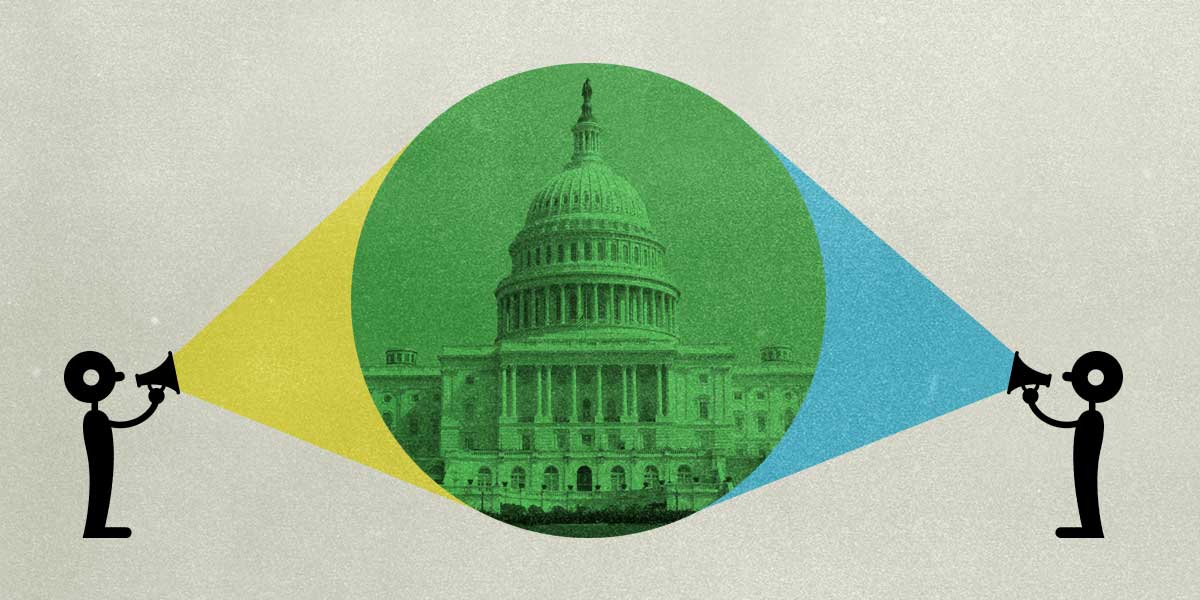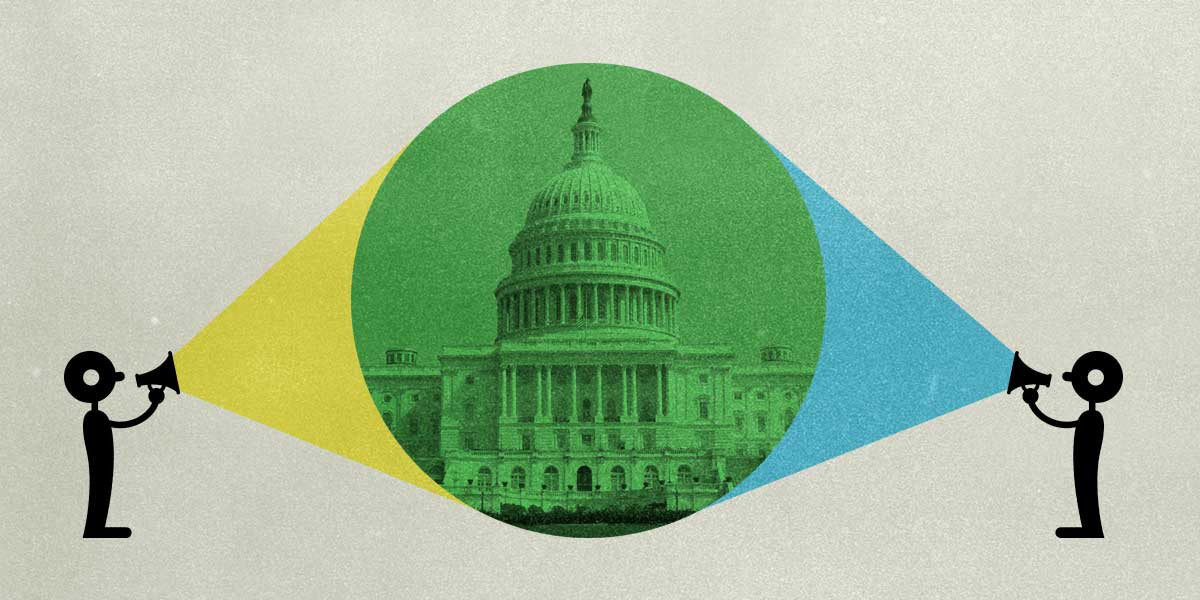August has just begun, and that means the start of the summer recess for Congress. During that recess, most members of Congress—specifically members of the House of Representatives—will be coming home. And that means that you have the opportunity to meet and talk to them without traveling to Washington, D.C. Let's make sure that Representatives hear about net neutrality, innovation, and privacy while they're back home. These discussions will play a huge rule in determining the Congressional agenda in the following months.
Constituents can request meetings with members of Congress either by filling out a meeting request form on the member’s official website or by contacting their local office in your state or district. You can look up your member’s address and phone number on the member’s official website. Make sure to check who your representative is since they prefer hearing from their constituents. Though it will depend on timing, you will hopefully get a meeting with the actual member of Congress. If not, meeting with Congressional staff will still get your concerns to the member.
Calling the local office will also help you find out if your member of Congress is planning any town halls. The staff may be able to give you the information over the phone and the member’s official website and social media accounts may also post the location and time of any town halls one to three days beforehand. Make sure to carefully follow any instructions listed about parking and security and look to see if you need to register ahead of time to attend. Be aware that registering may mean including your name and contact information and that failing to register may mean you can’t get into a town hall with heightened security. While speaking in-person is the best way to be heard, you can always send an email, letter, or call instead.
Town halls and meetings matter a lot. When members hear repeatedly from their own constituents in person about how issues are affecting people in the district, those conversations travel with the members back to DC. Especially if the members think that the issue could generate enough controversy and press, local stories can influence votes, legislation, and private conversations with other members.
With so many issues vital to digital rights looming in the congressional calendar, this August is a critical time for Internet users to pressure Congress to do the right thing on net neutrality, surveillance, copyright, and preventing government agencies from having the power to shoot down drones.
Here are some key issues to bring up this August, whether in meetings, town halls, calls, and letters to your member of Congress—or when writing for public audiences.
Net Neutrality
In 2017, the FCC under Ajit Pai voted to repeal the 2015 Open Internet Order which created clear, enforceable protections for net neutrality. Using the Congressional Review Act (CRA), a simple congressional majority can overturn the FCC’s decision. It’s already passed in the Senate and now we need the House of Representatives to follow suit. The vote has to happen in this session, so August is a key time to check and see where your representative stands and, if they haven’t committed to voting for the CRA, ask them why not. We’ve prepared a guide for how to talk about net neutrality with your representative when they’re home for the recess. You can also adapt parts of that guide—how to set up meetings and how to write op-eds, for example—for any of these issues. Ask your representatives to vote for the CRA.
Surveillance Technology on the Border
Time and again in the past year, Congress members met to negotiate and craft several bills to revamp many aspects of the country’s immigration process. And time and again, those bills required increased, high-tech government surveillance of citizens and immigrants alike. Any bill that would create a path to citizenship should not include invasive, high-tech surveillance. Please let your members of Congress know that increased surveillance should not be the price of immigration.
Extending and Complicating Copyright
S. 2823 is a bill that combines the Music Modernization Act (MMA) with the CLASSICS Act, and now both are being called the MMA. The combined package has already passed the House and is now pending in the Senate. The original MMA simply created a new system for compensating songwriters and music publishers for songs played on digital streaming services. CLASSICS, on the other hand, attaches new federal rights and penalties to sound recordings made before 1972 but doesn’t apply the federal rules about copyright term to those recordings. Most of those sound recordings won’t be in the public domain until 2067, meaning some will have copyrights lasting 144 years or more. And CLASSICS leaves the long state copyright scheme in place, but creates a national law to collect money on it. This complicated way of approaching copyright is the new frontier of assaults on the public domain, and members of Congress should be told not to fall for it. Please tell your elected officials not to vote for bills that keep music under the control of a few legacy companies while giving nothing back to the public.
Government Agencies Eliminating Drones with No Proper Procedures
When government agencies refuse to let the public know what they’re doing and where, drones can be an important tool to hold them accountable. However, the Preventing Emerging Threats Act of 2018 (S. 2836) would authorize Department of Justice and Department of Homeland Security to “track,” “disrupt,” “control,” “seize or otherwise confiscate,” or even “destroy” unmanned aircraft that pose a “threat” to certain facilities or areas in the U.S. The bill also authorizes the government to “intercept” or acquire communications around the drone for these purposes, which could be read to include capturing video footage sent from the drone. This expansion of powers does not require these agencies to follow the Wiretap Act, Electronic Communications Privacy Act, and the Computer Fraud and Abuse Act before they take down a drone. And it appears that some legislators will try to get this language passed however they can. This measure raises large First and Fourth Amendment concerns that must be addressed. Please ask your members of Congress not to extend the broad authority to destroy or hack drones to the Department of Justice and the Department of Homeland Security.











